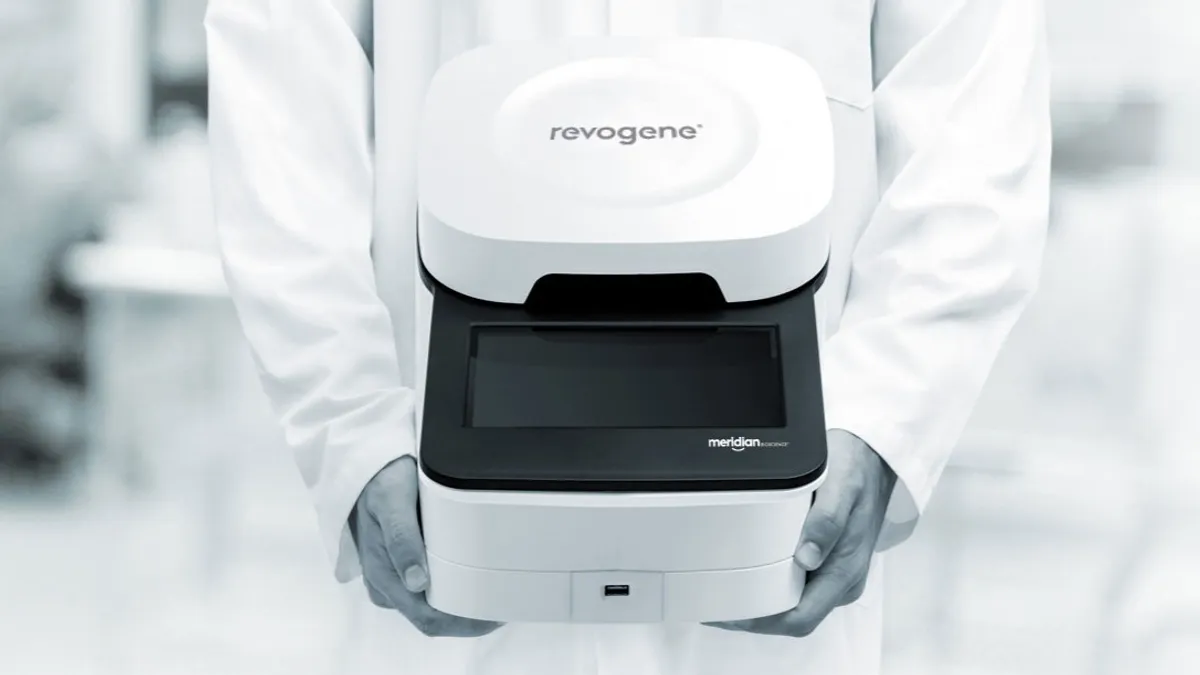Dive Brief:
- The Food and Drug Administration reauthorized Meridian Bioscience’s Revogene SARS-CoV-2 molecular assay for emergency use.
- U.S. regulatory officials warned late last year that the previous version of the test was unable to detect the omicron COVID-19 variant, leading Meridian to modify the design of the assay.
- The work led Meridian, which is the subject of a pending $1.53 billion takeover, to submit initial data on the revised assay in March and ultimately to win renewed emergency use authorization (EUA).
Dive Insight:
Meridian was one of three COVID-19 test developers called out by the FDA as omicron began to spread around the world in December. While the agency initially expected existing COVID-19 tests to detect the variant, it later said it expected products from Meridian, Applied DNA Sciences and Tide Laboratories would “fail to detect the SARS-CoV-2 omicron variant.”
Having won EUA in November, Meridian had yet to start selling its assay in the U.S. when the FDA reached its conclusion. The company decided to hold off coming to market until it resolved the issue.
Meridian took a step toward that goal in March when it completed development work and submitted its initial set of data to the FDA. Since then, the company has worked to address the agency’s requests, completing additional clinical studies and ultimately securing EUA late last week.
The FDA granted EUA to the molecular diagnostic test after reviewing data from a study that linked it to a positive and negative percent agreement of 97.7%. Meridian generated the data by using its Revogene test and a comparator method to analyze 86 nasopharyngeal swabs, split evenly between positive and negative samples. Revogene made one error each in the pools of positive and negative samples.
In a statement, Tony Serafini-Lamanna, executive vice president of diagnostics for Meridian, said “there continues to be demand for fast, accurate detection of COVID-19 especially considering the high transmissibility of these new variants and the upcoming respiratory season.”
However, some players in the market saw their sales fall in the most recent quarter.












